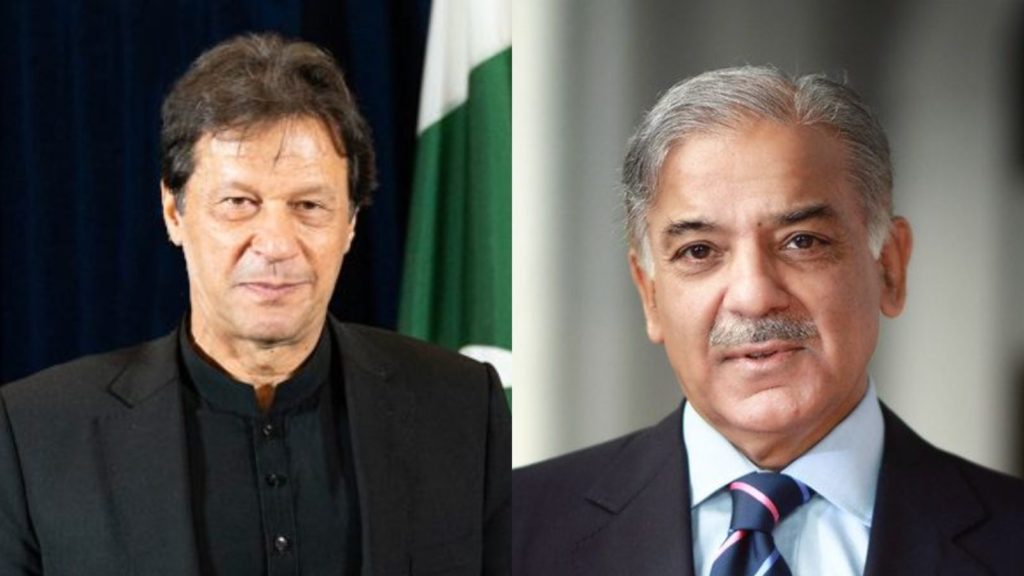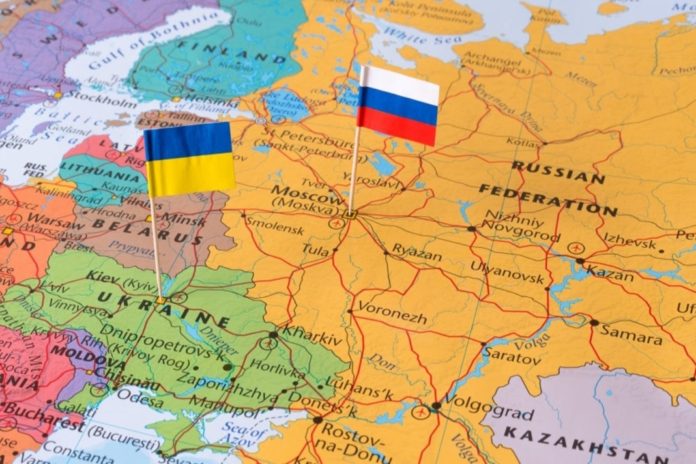Context
Historical parallels are important in developing perspectives on present-day conundrums. They provide an illustration of where matters were and what were the important events and considerations at the time. Deciphering this helps to ascertain where matters stand and navigate the future.
The November article last year had examined the division of British subcontinent in 1947 and compared the US August 2021 withdrawal to that. Since then, two other significant events have unfolded on the global scene. The invasion of Ukraine by Russia in February 2022 and the removal of Imran Khan’s government in April the same year through a no confidence vote. And the two events seem to be interlinked as well. Apparently, Imran Khan’s decision to visit Russia and meet Putin had angered Western powers including the US.
Analysis
Pre-Partition Dynamics
How does the arrival of a new Cold War with Russia and removal of Imran’s government fit with the earlier balance of power tussles that led the British to leave the Sub-Continent and the birth of India and Pakistan in 1947? Moreover, how does Imran’s stance differ from those adopted by previous leadership including Muhammad Ali Jinnah?
Clearly, both, Jinnah in the past, and Imran in the present, are dealing with a different set of circumstances. Jinnah was attempting to carve out a new nation and had to work with the colonial power. And the best chance for him to achieve success was by not being a revisionist. Moreover, he realized that the time of empires had passed, and the nation-state trend was the one he needed to conform to – not Pan-Islamism.
Another important consideration is an assessment of what other political thoughts existed at the time to deal with the challenges. Acuteness of challenges, especially economic, often cause strong divergent views – where it is difficult to bring consensus.
For example, Jinnah’s attitude was in stark contrast to that of Mowlana Azad, Mowdudi, Mohammad Ali and Showkat Ali, Ghaffar Khan, and other Pan-Islamists of the time. He was against the ‘Khilafat Movement’ (which was formed against the breakup of the Ottoman Empire) and considered it a religious exaggeration; Gandhi, ironically, had supported this movement. Some Pan-Islamists later resisted the formation of Pakistan, as it would divide the Muslims of the subcontinent, and inadvertently they became Gandhi’s staunch supporters.
The critical point in Jinnah’s position was his differentiation between the importance of local and regional interests vis-a-vis global ones. The local and regional interests translated into nationalistic interests, in the post-World War II nation-state environment. In Jinnah’s assessment, more importance was given to what was attainable; he complied with the nation-state trend in opposition to Pan-Islamism — the time for empires had passed. Not to forget, the transformation of Turkey to a State at the end of Ottoman Empire. And, it was not just Turkey. Virtually all the European empires had converted to nation-states toward the end of World War II.
Post-Independence Alignments
After gaining independence from Great Britain, Pakistan solidly remined in the Western block. The final battle of the previous Cold War was fought and won with Pakistan assistance in Afghanistan. It was, therefore, more than ironic that as the new Cold War got underway, and Russia invaded Ukraine in February 2022, the leader of Pakistan Imran Khan was seen standing next to Putin in Russia. And as Imran proclaims, his desire was to establish and maintain an independent foreign policy – his stances are perceived as Pan-Islamic and nationalist, with the undertones of revisionism.
When the Soviet Union invaded Afghanistan in1979, the then ruler and chief martial law administrator Gen Zia-ul-Haq squarely sided with the US in organizing jihad against the godless Soviets. Subsequently, after 9/11 when the US launched the War against Terror, the then military ruler of Pakistan Gen Musharraf also decided to side with the US in carrying out the campaign against terror. In both instances, the nation gained US economic and military support – despite the fact that both leaders had unceremoniously removed elected civilian governments of Zulfiqar Ali Bhutto and Nawaz Sharif respectively.
Irrespective, as the new Cold War gets underway, Imran Khan appeared to be a misfit. To conform with the past trajectory would have meant for him to quickly fall in line – and avail the opportunity presented by the change in global political landscape for the betterment of the country – as had occurred during the Zia and Musharraf’s time. Alternatively, even if that was not possible, then Jinnah presents an ideal depiction of how to operate as a pragmatist with a weak hand. While Jinnah had to carve out a nation, the present political, economic and security imperatives translate into no-less than an existential threat.
Imran’s idealism is requiring him to alter the very conditions that are taking the nation to brink of extinction again and again – namely corruption and an opportunism. Whenever matters have taken a turn for the worse, the country has waited things out, and surely time never stays the same. This, by any definition, can hardly be called a policy or a strategy.

Societal Outlook
When we look at the past for example, a question is also raised: did Jinnah align with the West because he believed the Allied powers were winning? Or – was it that he felt their values matched closely with his and what he was trying to achieve. After all, he spent a lot of time in Britain, like Zulfiqar Ali Bhutto and Imran Khan.
And this question remains relevant today. As Pakistan has remained an ally of the West and the US since Independence, naturally its people are also connected to the West when it comes to people-to-people contacts and commercial ties.
While the nation claims strategic friendship with China, the social contacts are no way near like what Pakistan has with the US. But which segment of the society are we talking about is also pertinent; the upper middle class, business elites, and top brass of the military have always been tied to the West, as can be said for many other nations.
More importantly, and otherwise less talked about is how closely is Pakistan’s value system similar to the West – at least in aspiring a democratic form of government and sharing customized version of liberal world view. While it is true that the West and the US have been losing their soft power but still Russia and China are no match when it comes to the cultural pull.
When Imran Khan gives an example of what systems inspires him other than ‘Riyasat-e-Madina’- he usually quotes the British system – not the Russian or Chinese; although he has praised the Chinese success in poverty alleviation.
The fact of the matter is that Pakistan is politically, socially, and economically still connected to and dependent on the West and the US. But this connection is deeper the higher one goes in the class system. And this has serious implications. Moreover, the disoriented youth have been galvanized and empowered by Imran’s narrative – which rhymes with their world view. And this world view has been facilitated by the West by supporting political leadership that falls short of its own standards and is seen as corrupt – and by not living up to the moral high ground in recent conflicts.
The non-revisionist class and leadership in whose hands the British left the power has lost credibility over time. Although that system is still attempting to maintain status quo but it would be increasingly difficult to do so.




